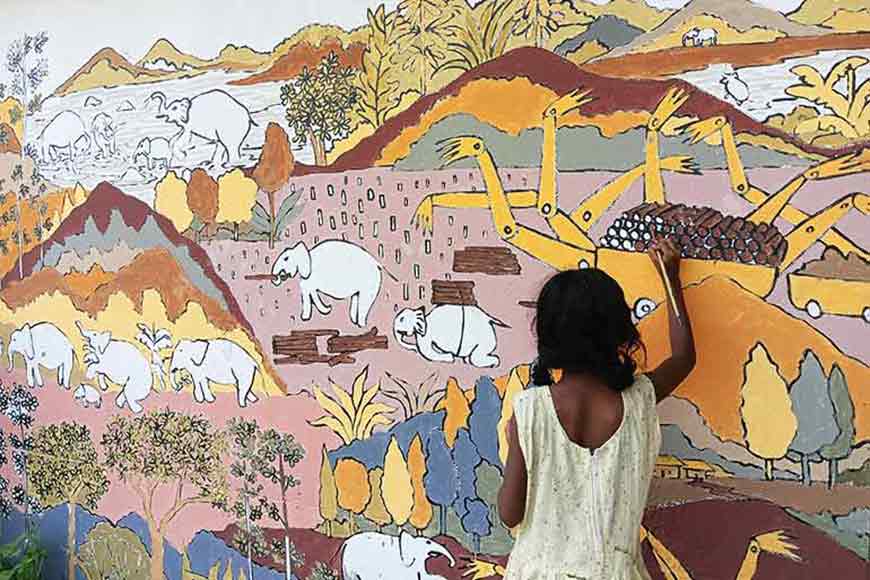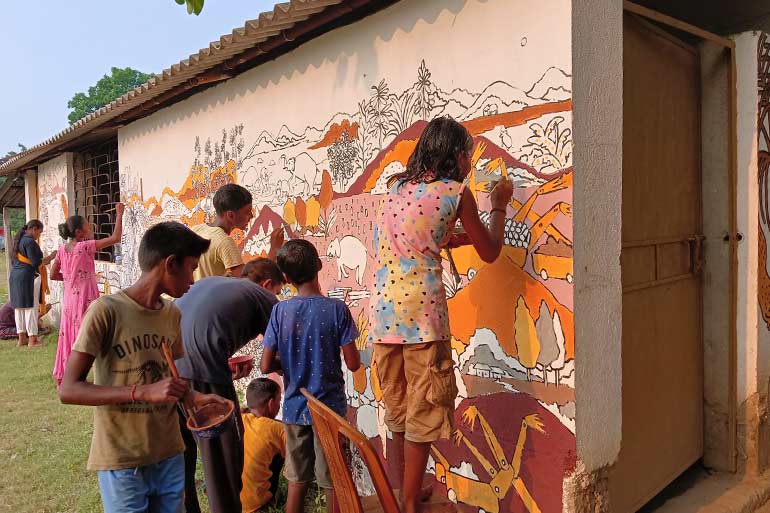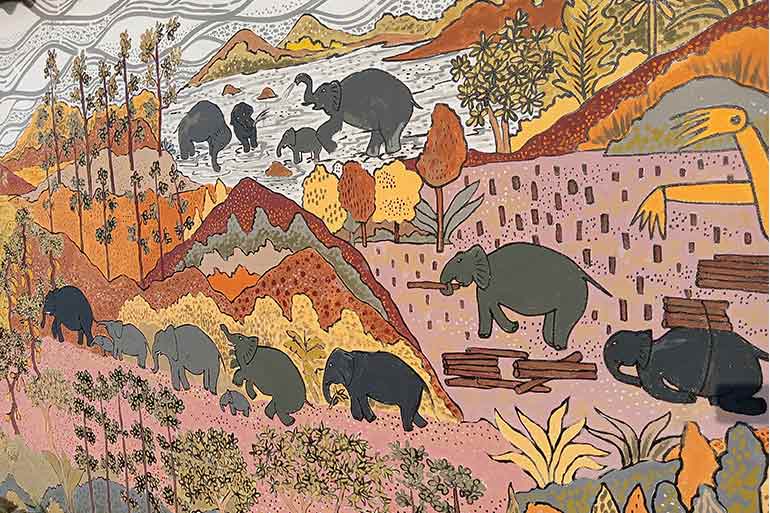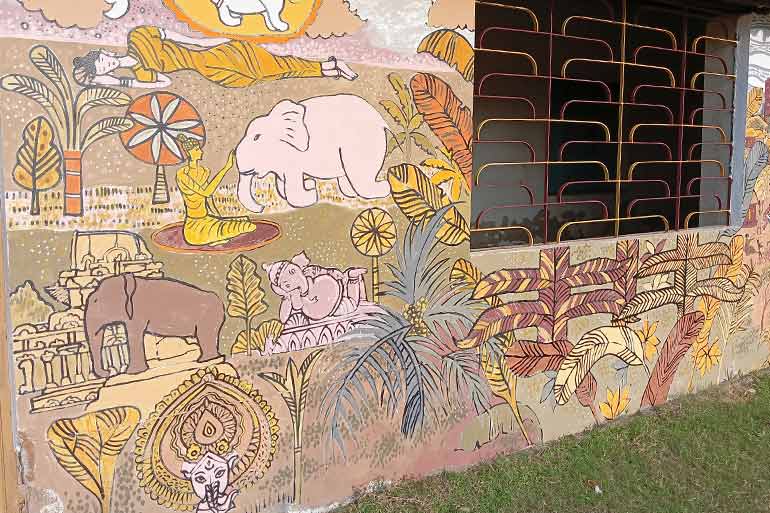How art is bridging the gap in Jhargram amid a human-elephant conflict - GetBengal story

“Elephants belonged in their stables, horses in theirs” – that is how royal palaces are often described in Bengali folktales, right? Or even in mythological stories, the king of the gods, Indra, rides a mighty elephant named Airavata. Again, just before the festival season, the divine architect Vishwakarma is also seen arriving on elephant-back in pandals across Bengal. There are also many sweet stories about the friendship between elephants and humans. All of this shows that the relationship between humans and elephants has been deep and long-standing since ancient times. This large quadruped has helped humans in many ways over the ages.
Let’s now travel to Konedoba village, located on the western edge of Jhargram. Here, due to reckless human activities, a conflict has arisen between the villagers and elephants. But some thoughtful individuals are now trying to rebuild that once-harmonious relationship.

Lalbazar, a predominantly tribal village in Jhargram and home to the Lodha community, is undergoing a quiet yet powerful transformation. It is now known as Khoababgaon. Artist Mrinal Mondal taught this village to envision a different future. In 2018, he adopted this village and handed over brushes and colours to the local people, helping them weave dreams through art. The dream that Mrinal began in Lalbazar is now spreading to nearby villages as well.
One such village is Konedoba which is currently facing a serious elephant problem. Newspapers and social media often report incidents of elephant deaths, sometimes even pregnant elephants being killed by humans. But why? Is it just human cruelty? On reflection, one might see that in some cases, people are driven to aggression out of helplessness.
Mrinal Mondal expressed his feelings to GetBengal and said, “When we were kids, elephants used to come down from the Dalma Hills during a certain season, stay for a couple of months, and then they used to go back. But lately, they have been entering human settlements almost daily, destroying crops, and even causing human fatalities.” But what has changed in the elephants’ behaviour? According to Mrinal, it is primarily due to the destruction of forests in the hills. Hungry elephants, unable to find food, wander into villages. Villagers are attacking them out of fear. Sometimes children innocently tease or irritate the elephants while playing. This likely scares the elephants, who then attack in self-defence, even targeting innocent people, all out of fear.

This growing human-elephant conflict deeply concerned Mrinal and he realised that awareness had to be planted in the minds of children. So, from June this year, they started awareness campaigns.
How are these awareness campaigns being conducted? Mrinal said, “We are trying to teach people not to unnecessarily harm elephants.” They chose to work mainly with children. Kids from Konedoba and three neighbouring villages gather under trees and learn how to safely coexist with elephants. Through songs, art, and other creative methods, children, and even adults, are being educated.
When asked about the issue on behalf of GetBengal, visual artist Kaustav Chakraborty said, “We are painting murals on walls with messages like showing fire from a distance to scare elephants away instead of harming them, and explaining why people should avoid attacking elephants.” They also teach how elephants, despite their size, are essentially gentle animals, and how fear and hunger have driven them to aggression.
So how are the villagers responding to these efforts? Speaking to residents Sunil Kisku and Sanjay Kisku of Konedoba, it became clear that while the elephant menace continues, these lessons are proving helpful and widely accepted by both children and adults.
In nature’s food chain, herbivores depend on producers, primarily plants, for sustenance. But unchecked human greed is destroying forests, disrupting the balance between producers and consumers. This ecological imbalance is harming both wildlife and humans

Mrinal adds, “Through the media, we are appealing to the government and administration to take strict steps to protect our forests.”
Just as humans have a rightful place on Earth, so do other creatures. But the greed of the most intelligent species on the planet, humans, has made it forget this simple truth. Only human wisdom can restore that lost balance. And it is with that hope that the dreamers of Khoabgaon continue to dream.
Note: Translated by Debamita Ghosh Sarkar
To read the original Bengali article , please click here










